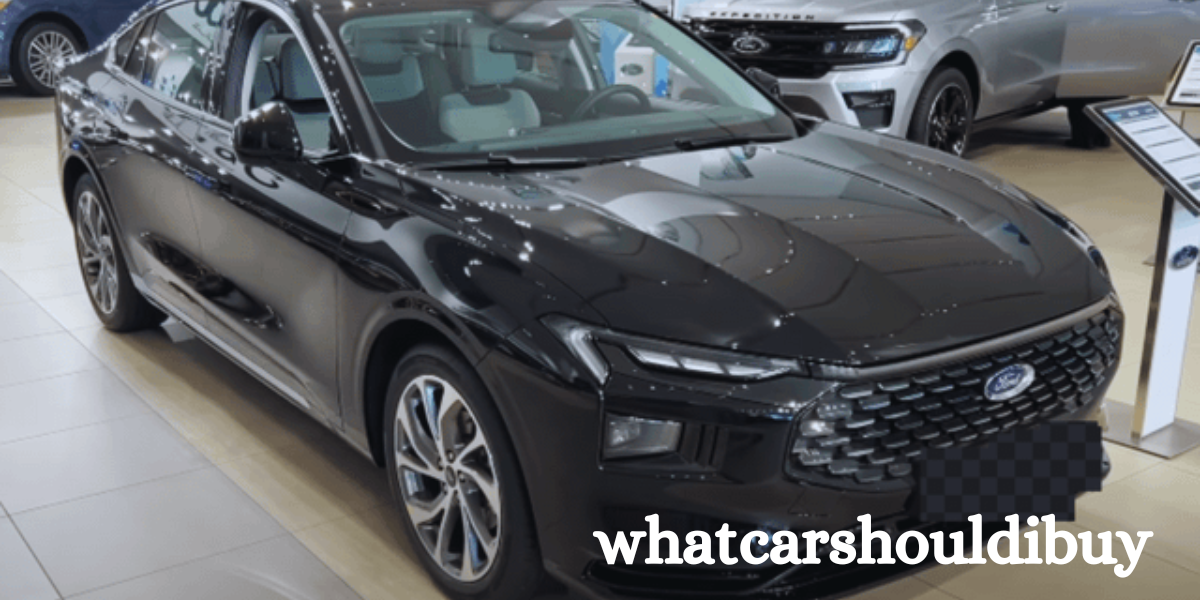
Introduction
Choosing the right car whatcarshouldibuy can feel like navigating a labyrinth. With countless options and factors to consider, the process can be overwhelming. But don’t worry; we’re here to help you make an informed decision that suits your lifestyle and budget.
Assess Your Needs
Before diving into makes and models, take a step back and assess your needs. Do you have a long daily commute? Is your family growing? Are you an adventurer who loves road trips? Knowing your requirements is the first step toward finding the perfect car.
Daily Commute
For those with long daily commutes, fuel efficiency and comfort become critical. Compact cars and sedans often provide better gas mileage, saving you money in the long run.
Family Size
If you have a family, consider the number of passengers and the cargo space you’ll need. SUVs and minivans offer ample room for kids, pets, and all their gear.
Travel Preferences
Do you love off-roading or long highway drives? Your travel preferences can significantly impact your choice. An SUV might be perfect for rugged adventures, while a comfortable sedan could be ideal for highway cruising.
Set Your Budget
Setting a realistic budget is crucial. Decide how much you’re willing to spend and stick to it. Consider all the costs, not just the sticker price.
New vs. Used Cars
New cars come with the latest features and warranties but depreciate quickly. Used cars are more affordable but may require more maintenance.
Financing Options
Explore financing options, including loans and leases. Compare interest rates and terms to find the best deal.
Hidden Costs
Remember to factor in hidden costs such as insurance, registration fees, and taxes. These can add up quickly and impact your overall budget.
Consider Fuel Efficiency
Fuel efficiency is not just about saving money at the pump. It’s also about reducing your carbon footprint.
Gasoline, Diesel, Hybrid, and Electric Cars
Each type of car has its pros and cons. Gasoline and diesel cars are widely available and have a broad range of models. Hybrids offer a balance between fuel efficiency and power. Electric cars are eco-friendly and have lower running costs but may have limited range and require access to charging stations.
Long-Term Cost Savings
While hybrids and electric cars might have higher upfront costs, they can save you money in the long run through reduced fuel costs and potential tax incentives.
Evaluate Car Size and Type
The size and type of car you choose should align with your needs and preferences.
Compact Cars
Compact cars are great for city driving and parking in tight spaces. They’re fuel-efficient and easy to maneuver.
Sedans
Sedans offer a good balance of space, comfort, and fuel efficiency. They’re suitable for small families and daily commutes.
SUVs
SUVs provide ample space and versatility. They’re perfect for families and those who need extra cargo room.
Trucks
Trucks are ideal for those who need to haul heavy loads or enjoy off-roading. They offer durability and power.
Vans
Vans are the go-to choice for large families or those needing significant cargo space. They’re practical and offer various seating configurations.
Understand Car Features
Modern cars come with a plethora of features. Prioritize the ones that matter most to you.
Safety Features
Look for cars with advanced safety features like automatic emergency braking, lane-keeping assist, and adaptive cruise control. These can significantly enhance your safety on the road.
Technological Amenities
From infotainment systems to advanced navigation, tech amenities can make your driving experience more enjoyable. Decide which features are must-haves for you.
Comfort and Convenience
Consider features that enhance comfort and convenience, such as heated seats, ample legroom, and easy-to-use controls.
Research Reliability and Maintenance
A reliable car can save you a lot of headaches and money in the long run.
Brand Reputation
Some brands are known for their reliability and longevity. Research different brands and their reputations before making a decision.
Maintenance Costs
Consider the cost of maintenance and repairs. Some cars might have lower upfront costs but higher maintenance expenses.
Longevity
Look for cars known for their longevity and durability. These can provide better value over time.
Think About Resale Value
Resale value is an important consideration, especially if you plan to sell the car in a few years.
Depreciation Rates
Cars depreciate at different rates. Some models hold their value better than others. Research depreciation rates to make a more informed decision.
Popular Models
Popular models tend to have better resale value. They’re in higher demand, making them easier to sell.
Test Drive and Inspection
Never skip the test drive. It’s your chance to see how the car feels and performs.
Importance of Test Drives
A test drive helps you assess the car’s comfort, handling, and overall performance. It’s a crucial step in the buying process.
Professional Inspection Tips
For used cars, consider getting a professional inspection. This can help identify any potential issues that might not be obvious during a test drive.
Check Insurance Rates
Insurance is a significant ongoing cost. Compare rates for different models to find the most affordable option.
Factors Affecting Insurance Premiums
Several factors can impact your insurance premiums, including the car’s make and model, your driving record, and where you live.
Comparing Insurance Quotes
Get quotes from multiple insurance providers to ensure you’re getting the best rate.
Review Ownership Costs
Owning a car involves more than just the purchase price. Consider all the ownership costs.
Registration Fees
These fees vary by location and can add to your overall costs.
Taxes
Don’t forget to account for sales tax and other local taxes.
Regular Maintenance
Regular maintenance is essential to keep your car running smoothly. Factor in the cost of oil changes, tire rotations, and other routine services.
Read Reviews and Ratings
Reading reviews and ratings can provide valuable insights into a car’s performance and reliability.
Expert Reviews
Experts provide detailed analyses and comparisons. They can help you understand the pros and cons of different models.
Customer Testimonials
Customer reviews offer real-world Guide insights into how a car performs in everyday use. They can highlight common issues or benefits.
Explore Buying Options
There are several ways to buy a car. Explore all your options to find the best deal.
Dealerships
Dealerships offer a wide selection and financing options. They often provide warranties and after-sales services.
Private Sellers
Buying from a private seller can be cheaper, but it comes with more risk. Ensure you get the car inspected and verify all the paperwork.
Online Platforms
Online platforms offer convenience and a wide selection. However, buying a car sight unseen can be risky. Ensure you use reputable websites and services.
Negotiate the Price
Negotiation is an essential part of the car-buying process. Don’t be afraid to haggle.
Effective Negotiation Tactics
Do your research and know the market value of the car. Be prepared to walk away if the deal isn’t right.
Understanding Dealer Incentives
Dealers often have incentives and discounts. Ask about these to potentially lower the price.
Make the Final Decision
After all the research and test drives, it’s time to make your final decision.
Weighing Pros and Cons
Consider the pros and cons of each option. Make a list if it helps you visualize your choices.
Trusting Your Instincts
Trust your instincts. If something feels off, it might be worth reconsidering your choice.
Conclusion
Choosing the right car is a whatcarshouldibuy significant decision that requires careful consideration of your needs, budget, and preferences. By following these steps, you’ll be well-equipped to make an informed choice that you’ll be happy with for years to come.
FAQs
- What are the best cars for new drivers?
- Compact cars and sedans are often recommended for new drivers due to their ease of handling and fuel efficiency.
- How do I determine the best car for my family?
- Consider factors like the number of passengers, cargo space, and safety features. SUVs and minivans are often great choices for families.
- Should I buy a car online or from a dealership?
- Both options have their pros and cons. Dealerships offer more security and after-sales services, while online platforms provide convenience and a wide selection.
- What is the best way to finance a car purchase?
- Explore all financing options, including loans and leases. Compare interest rates and terms to find the best deal.
- How do I get the best deal on a used car?
- Research the car’s market value, get a professional inspection, and don’t be afraid to negotiate the price.




